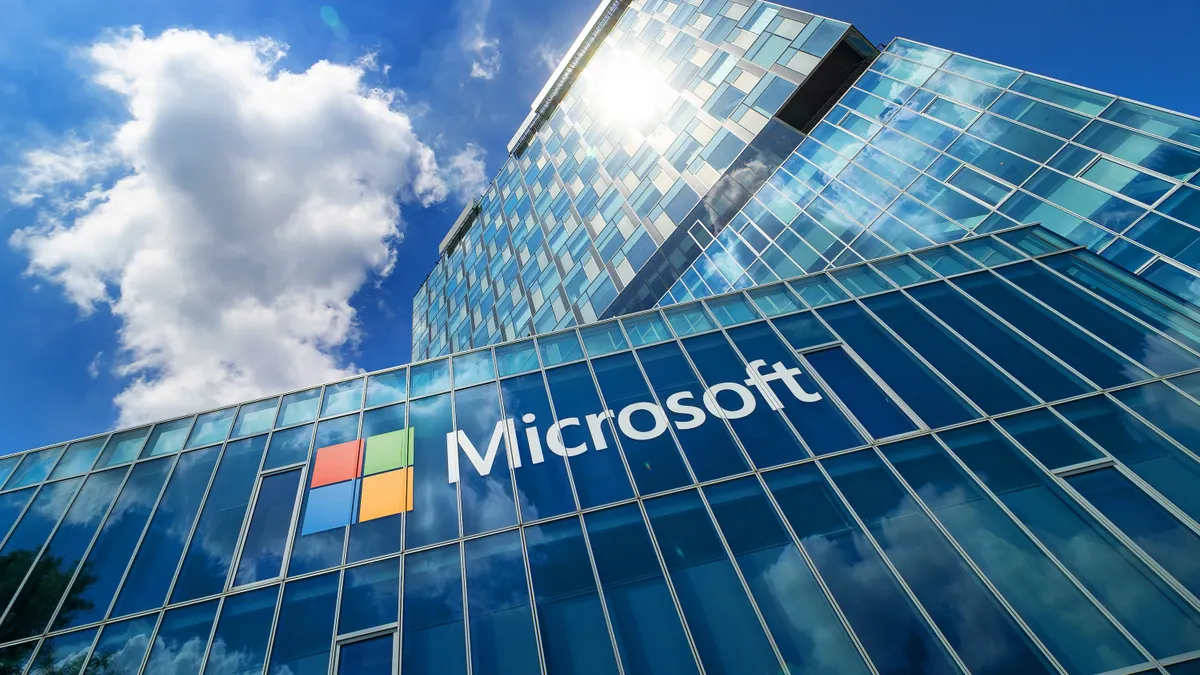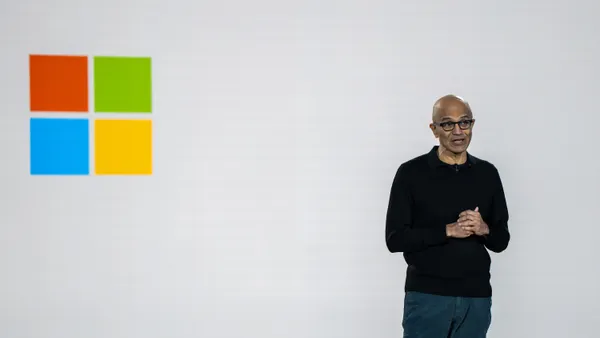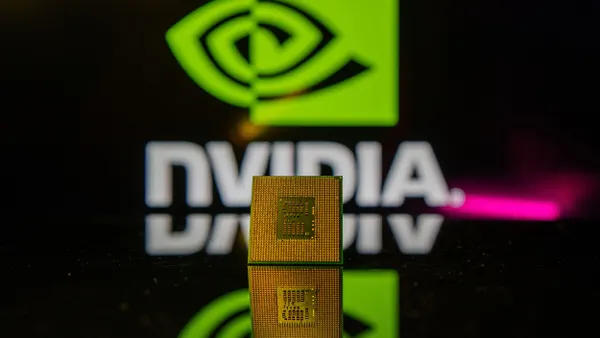Dive Brief:
- Set against the backdrop of an Azure outage, Microsoft reported sizable growth in its cloud revenue and adoption of its AI offerings as it kicked off fiscal year 2026 reporting, according to a Wednesday earnings call for the quarter ending Sept. 30.
- CEO Satya Nadella said there’s about 900 million monthly active AI users across Microsoft’s product portfolio. The company’s Copilot offerings have garnered 150 million monthly active users while its small language model family Phi has been downloaded 60 million times, increasing 3x year-over-year, Nadella said.
- Cloud revenues were up 26% year over year, surpassing $49 billion. Microsoft’s Azure and other cloud services revenue increased 40% compared with the previous year. The Azure-based AI platform Foundry has racked up 80,000 customers, including 80% of the Fortune 500, Nadella said.
Dive Insight:
While customers weathered the hourslong outage Wednesday, Microsoft talked up its growth of cloud services and future spending plans to investors.
Microsoft’s capital expenditures for the quarter neared $35 billion, in line with a $30 billion-plus prediction for the period during last quarter. Roughly half of Microsoft’s spend this quarter was on “short-lived assets,” EVP and CFO Amy Hood said, such as GPUs and CPUs to support Azure demand, growing AI solutions, accelerating research and development and replacing server and network equipment.
The company also spent $11.1 billion on longer-term assets such as large data center sites. Despite the sizable investment, Microsoft is still struggling with a capacity shortage — and expects the constraint to continue through the end of the fiscal year at minimum, according to Hood.
“We've worked very hard to try to mitigate it as best we can, but we have been short in Azure, and we've been clear on it,” Hood said, according to a SeekingAlpha transcript. “It's hard for me to give an exact number, but it is safe to say that [revenue] could be higher.”
The capacity crunch persists as OpenAI seeks to diversify its computing providers. The ChatGPT-maker agreed to purchase an incremental $250 billion of Azure services, but Microsoft no longer retains the right of first refusal to be OpenAI’s compute provider as part of a new partnership announced earlier this week.
Microsoft’s net income experienced a $3.1 billion hit due to its OpenAI investment. Hood said the Tuesday deal did not affect Q1 results, but it could have an impact down the road.
“The combination of OpenAI's conversion to a public benefit corp and the ongoing nature of our partnership will result in increased volatility,” Hood said.
Despite a close, established partnership at the start of the AI race in 2022, OpenAI and Microsoft have drifted apart in recent quarters. As part of the new agreement, both companies have a longer leash to pursue third-party deals and product development.
“If all of the demand just comes for just one [meter], that's really not a long-term business we want to be in,” Nadella said. “We have to balance it with all of our first-party stuff because that's, after all, a different margin stack for us, and then we have to fund our own [research and development] and model capability because in the long run, that's what's going to differentiate us.”















